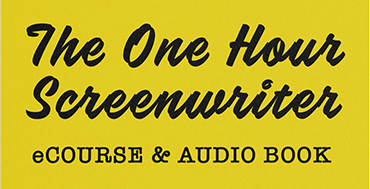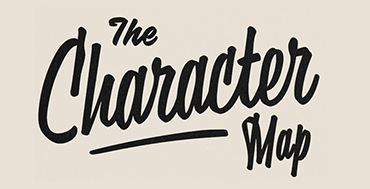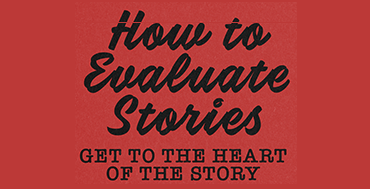Aronofsky’s Noah & Adaptation Challenges
Darren Aronofsky’s film, Noah, has caused controversy and consternation across the religious spectrum. Some professed atheists are none too pleased, either. Yet, the film racked up impressive box office numbers and has scored many positive reviews in both the secular and religious press.
Those who complain about the film criticize Aronofsky’s visual style, the mass killings of flood victims, Aronofsky’s straying from specific elements in the scriptural text, and adding creative elements not present in the original Bible story.
Whether you liked the film or not, Noah is a great look at the adaptation process and the key elements in transforming a story from one medium to another.
The story of Noah, as it written in the Bible, is episodic. One action simply follows another. Instructed by God, Noah has a goal. He sets about accomplishing that goal in a straightforward sequence of events.
There is lots of external conflict in Noah’s Bible story: the rigors of building the ark, gathering the animals, the danger presented by the rising flood waters, and the endless days of floating across a vast watery world not knowing where or when they would land. But the Biblical text provides very few relationship conflicts and Noah has no personal internal conflict. Much is missing or omitted from the original text that needs to be present in a successful fictional story.
Scripts fail when the protagonist only struggles with external obstacles. Our internal struggles and contradictions define what we do and what we do defines who we are. Character is action. A character’s internal conflict drives the character’s actions in response to any and all external conflicts. Resolving that inner conflict is what creates a character’s emotional or spiritual journey. No inner conflict no journey. As written in the Bible, Noah has no conflicted interior life. He simply proceeds on his mission step-by-step.
Among the Nine Character Types, Noah is Power of Conscience character. Power of Conscience characters are propelled to act out of an innate sense of duty, responsibility, and righteousness. Noah is specifically described as “a righteous man, blameless among the people of his time, one who walked faithfully with God”.
Power of Conscience characters feel responsible for the greater good and for doing good. Internally, they wrestle with how far they should go in seeking justice or how much wrong should they do in the cause of right. They struggle with what is the higher duty. Is the precise letter of the law more important than the more generous spirit of the law? Which should prevail: justice or mercy? Is punishment or forgiveness the more righteous choice? What does the higher duty call them to do? Please note: SPOILERS AHEAD if you haven’t seen the movie yet.
Power of Conscience characters fear failing in their own eyes or in not living up to their own high moral standards. They fret over how far they should go in promoting their deeply held personal beliefs or acting on their moral outrage.
Some of the best adaptations start with a question. I don’t know him personally but I believe Aronofsky started by asking himself why, after fulfilling his mission, does Noah drink himself into near insensibility, to the point he doesn’t bother to dress himself. Aronofsky’s answer seems to be— because Noah thinks he has failed.


In order to strengthen Noah’s position, Aronofsky doesn’t include Noah’s son’s wives in his retelling of the story. Only one son, Shem, has a wife, Ila, but she is barren. When a miracle occurs and Ila conceives, Noah believes the child must be killed (sacrificed to God) if the baby is a female (and capable of reproducing).
Noah’s wife, Naameh, argues for mercy. Noah is adamant about his interpretation of his mission. After Ila gives birth to twin girls, Noah remains convinced about what he must do. He burns the raft Shem and Ila build to escape. Ila runs back into the Ark. When Noah finds her, knife in hand, she begs to be allowed to comfort the children so they won’t die afraid. She sings a lullaby that Noah sang to her. When the babies quiet, Noah cannot kill them in their innocent slumber. At the expense of his mission, Noah saves the babies. Noah believes he has failed.
Ila comes to him in his depression and tells him that human compassion, mercy, and kindness are the most important virtues. It is impossible to fail God if you hold these things in your heart and you act for the good of another. Ila suggests that it is God’s will that Noah discover mercy in contrast to the harsh justice he has witnessed.
Noah is an Old Testament story brought into the New Testament. What Ila tells Noah reminds me of what Jesus tells the Pharasees when he heals a man on the Sabbath.
Matthew 12:11— “And a man was there whose hand was withered. And they questioned Jesus, asking, “Is it lawful to heal on the Sabbath?”– so that they might accuse Him. And He said to them, “What man is there among you who has a sheep, and if it falls into a pit on the Sabbath, will he not take hold of it and lift it out? How much more valuable then is a man than a sheep! So then, it is lawful to do good on the Sabbath.”
The letter of the law says it is forbidden to work on the Sabbath. The spirit of New Testament teaching is that compassion, mercy, and kindness toward others are more important than Sabbath law or any other law. For the sake of compassion and generosity, Jesus ignored laws of ritual washing, laws forbidding association with women and those who were unclean, and dietary laws. Over and over in the Bible, Jesus chooses mercy.


Javert hunts Jean Valjean for decades. Javert’s duty is to strictly enforce the law and to return all escaped convicts to prison.
Jean Valjean has the opportunity to kill Javert, and end the chase, but Jean Valjean spares Javert’s life instead. Javert realizes his quarry is a good man. Javert lets Jean Valjean go.
But Javert cannot live in a world where mercy might be morally superior to the letter of the law. Javert kills himself because he cannot live with this contradiction of his rigid belief in his duty as a “man of law”.
Noah struggles with the same kind of contradiction. What is the higher duty? Should we promote justice or extend mercy? How far are we willing to go in doing what we believe is right? How far is too far? These internal conflicts are at the heart of Aronofsky’s adaptation of the the Noah story. They are the essential conflicts that make this brief episodic Bible story work as a movie.




Create a visual map for a character’s emotional journey. Pull stories from character rather from rote story structure beats. Some of the largest international media companies, use this in story and character development.


A clear concise guide for writers and producers to have by their side as they embark on a project. It gives a really vital reminder of what is key for story success.


No comment yet, add your voice below!